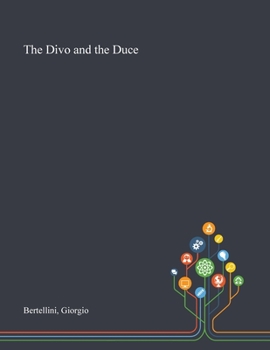The Divo and the Duce
Select Format
Select Condition 
Book Overview
In the climate of isolationism, nativism, democratic expansion of civic rights, and consumerism that America experienced after the First World War, Italian-born movie star Rudolph Valentino and Italy's dictator, Benito Mussolini, became surprisingly appealing emblems of authoritarian male power. Drawing on extensive research in the United States and Italy, Bertellini's work shows how the political and erotic popularity of Valentino, the Divo, and Mussolini, the Duce, was not just the result of spontaneous popular enthusiasm. Instead, Bertellini argues, it also depended on the efforts of public opinion managers, including publicists, journalists, and even ambassadors. As such, the fame of the Divo and the Duce reveals both the converging publicity work undertaken in Hollywood and Washington since the Great War and the extent to which their foreignness was put to work in managing postwar anxieties about democratic governance. Beyond the democratic celebrations of the Jazz Age, this promotion of charismatic masculinity, while short-lived, inaugurated the now-familiar convergence of popular celebrity and political authority. This work was published by Saint Philip Street Press pursuant to a Creative Commons license permitting commercial use. All rights not granted by the work's license are retained by the author or authors.
Format:Paperback
Language:English
ISBN:1013292324
ISBN13:9781013292323
Release Date:October 2020
Publisher:Saint Philip Street Press
Length:326 Pages
Weight:1.67 lbs.
Dimensions:0.7" x 8.5" x 11.0"
Customer Reviews
0 rating





